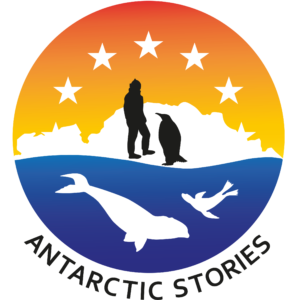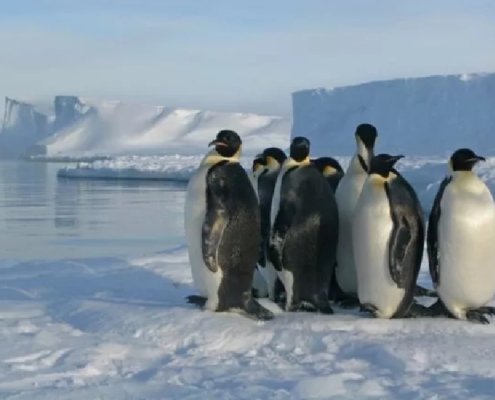 Emperor penguins photographed here on the Brunt ice sh (Image: © The British Antarctic Survey)
Emperor penguins photographed here on the Brunt ice sh (Image: © The British Antarctic Survey)Good news – Emperor penguin poop spotted from space
It's often hard to find colonies of Emperor penguins. They are frequently located in remote, difficult to reach locations across Antarctica. But satellites circling high above the Earth have spotted their poop on the pure white surface in remote…
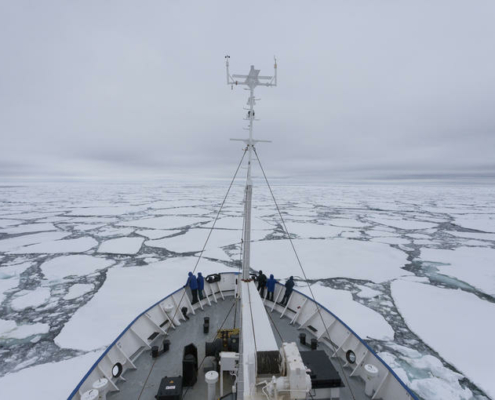 Photo prise le 20 janvier 2016 dans la mer de Ross, bordant l’Antarctique. PHOTO / Samuel Blanc / Biosphoto / via AFP
Photo prise le 20 janvier 2016 dans la mer de Ross, bordant l’Antarctique. PHOTO / Samuel Blanc / Biosphoto / via AFPMethane leak found on Antarctic sea floor
Methane is a powerful greenhouse gas. Now, researchers from Oregon State University have found it leaking from the Antarctic sea floor under the Ross Sea.
Previously, scientists believed that if there were undersea methane leaks, micro-organisms…
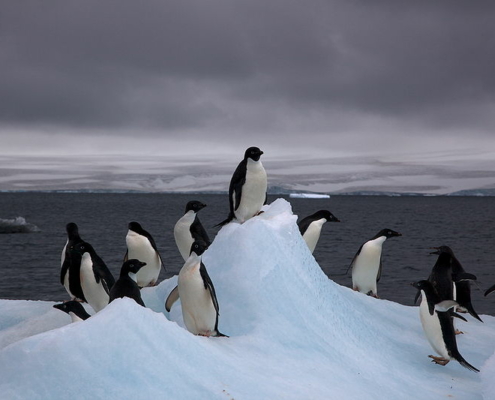 https://www.flickr.com/photos/10004136@N05
https://www.flickr.com/photos/10004136@N05Good news for Adelies!
Climate change is threatening many species of animals across the world. But Adelie penguins are benefiting from the loss of sea ice - they much prefer swimming in the sea instead of waddling over the ice!
Read more:
https://news.sky.c…
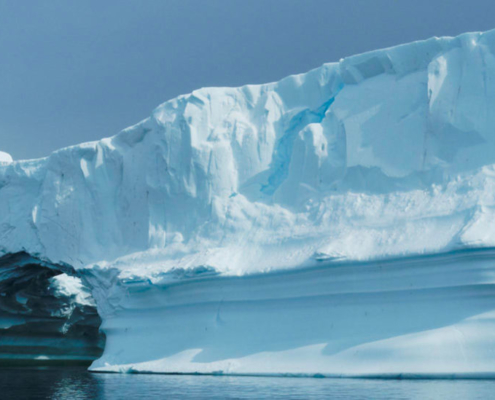
Antarctica warming faster than the rest of the world
The interior of the Antarctic may be warming much faster than the rest of the world. So says new research, which looked at natural climate variability and human-made climate change.
It's another warning that we can't wait to act on climate…
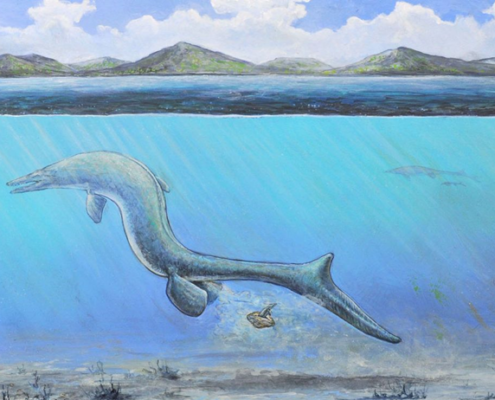 https://news.utexas.edu/2020/06/17/egg-from-antarctica-is-big-and-might-belong-to-an-extinct-sea-lizard/
https://news.utexas.edu/2020/06/17/egg-from-antarctica-is-big-and-might-belong-to-an-extinct-sea-lizard/Mystère de l’œuf géant
Depuis sa découverte en 2011, le mystère plane sur les origines d’un œuf à coquille molle de 18 cm sur 28 cm trouvé en Antarctique. Quel animal a pu pondre un tel œuf – le deuxième plus grand jamais découvert ? Finalement, les chercheurs…
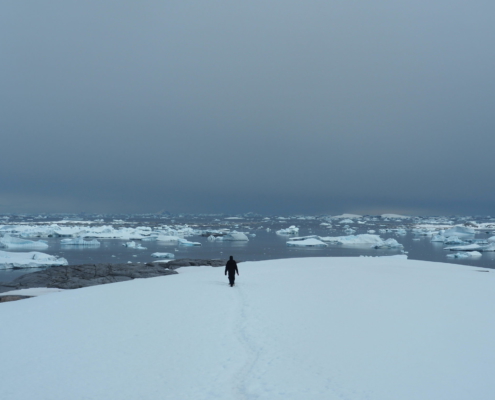
Antarctica’s meteorite mystery
Meteorites are dark coloured lumps of rock that fall from space to earth. They can be very small but on a continent covered in snow and ice, it's easy to see them. So you might think that makes Antarctica an ideal place for scientists looking…
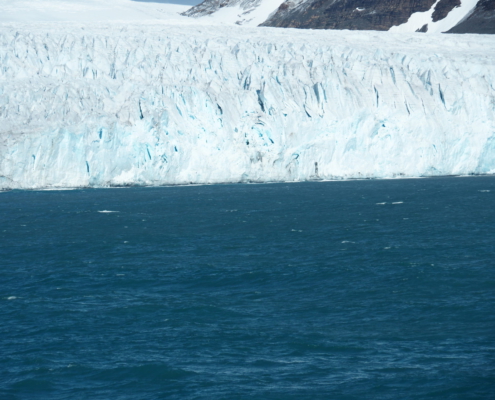
Ice shelves may disappear very rapidly
New research that examined the ridges on the sea bed in Antarctica suggests that floating ice shelves could melt back by 6 miles (about 10km) per year. Although some scientists dispute the findings of the study, if correct it could have major…
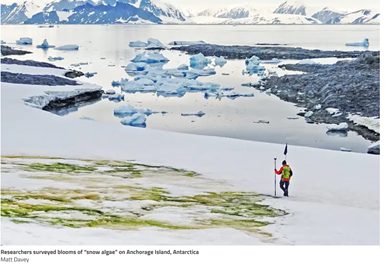
Parts of ‘White Continent’ turn green
As parts of Antarctica experience warmer weather, the snow is turning green. The colour is caused by blooms of algae which grow on the slushy snow, nourished by the nutrients in penguin droppings.
Scientists discovered the blooms on satellite…
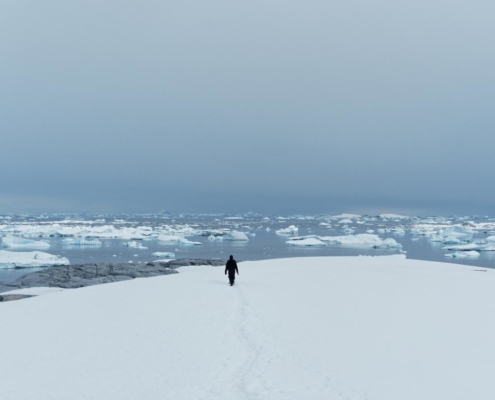
Antarctica in the time of corona virus
While millions of people around the world are coping with COVID-19 lockdowns, scientists and support staff in Antarctica are preparing to ‘lockdown’ for their winter isolation. They will be completely cut off from the rest of the world in…
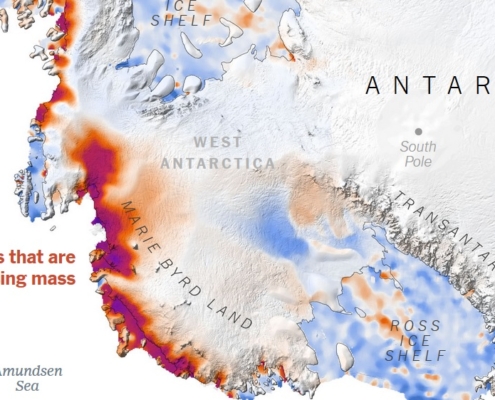 https://science.sciencemag.org/content/early/2020/04/29/science.aaz5845
https://science.sciencemag.org/content/early/2020/04/29/science.aaz5845Images show Antarctic ice loss in exceptional detail
Data from space is allowing scientists to understand ice loss in Antarctica as never before. The high resolution images are both beautiful and concerning, illustrating in great detail where ice is thinning.
See more here: https://www.nyt…
